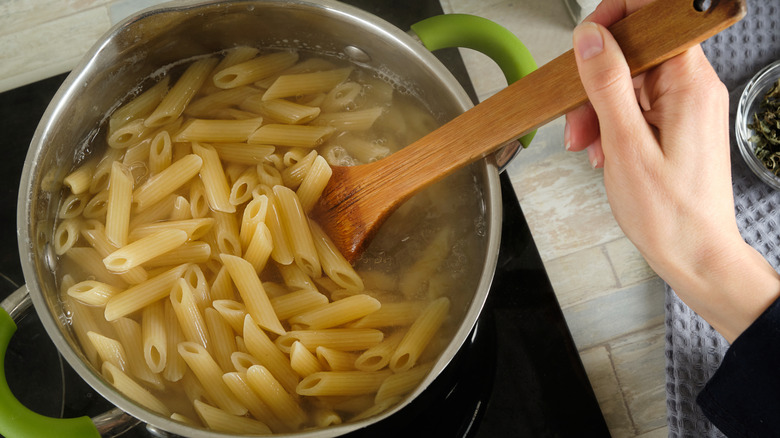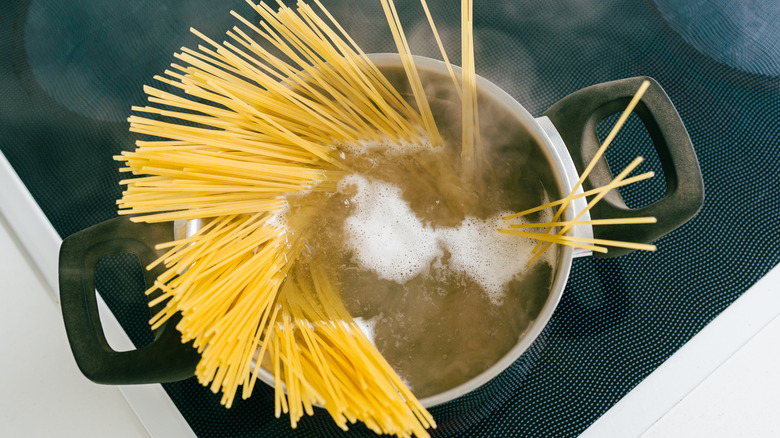Besides Tasting, The Easiest Way To Know Pasta Is Al Dente Requires Reading
Knowing how to tell when your pasta is done cooking is a skill that everyone should have in their back pocket. But it's more than just knowing when it's done; you have to know when it's al dente. Al dente, Italian for "to the tooth," essentially means to cook the noodle until it is still somewhat firm. To many, this provides a better texture and taste and allows the pasta to hold its shape in the sauce. Overcook the noodles, and they will go from tender to mushy. Determining just where the pasta is in this process often means taking a bite.
If you can't quite master the art of knowing when your pasta is al dente just by taste, there is one way that Antonio Morichini, chef and owner of Via Vai in New York City swears by. "The easiest way to tell when dry pasta is al dente? Look at the box or bag — it will always have cooking times!" he says. However, fresh pasta is a different story. According to Morichini, "Fresh pasta is different — normally 3 minutes should be enough for fresh pasta but even that depends." To achieve success there, you'll have to look a little more closely.
The secret to achieving the perfect al dente pasta
An often-overlooked secret to achieving al dente perfection is understanding the role of pasta water. Once you know how much water you should actually use to boil pasta, the rest is easy. Morichini says you can also tell when your pasta reaches peak al dente by "how much foam is being let out by the pasta in the water — that is the release of the starch." This starchy liquid is culinary gold and can be the optimal way to create smooth, succulent sauces that cling to your pasta and the main reason you never want to rinse your pasta. The starch helps sauces adhere to the unrinsed pasta so washing it away would be a mistake.
Reserve a cup of pasta water before draining your noodles and add it to your sauce a little at a time. This ensures your pasta stays moist and allows you to adjust the sauce's consistency to your liking. Plus, if your pasta is slightly undercooked, tossing it with the sauce and a splash of pasta water over low heat can finish it to perfection, helping it absorb flavor while maintaining that satisfying bite. And if you strive to be a zero-waste kitchen, you can even use leftover pasta water to thicken soup, make bread, or cook up some risotto.

